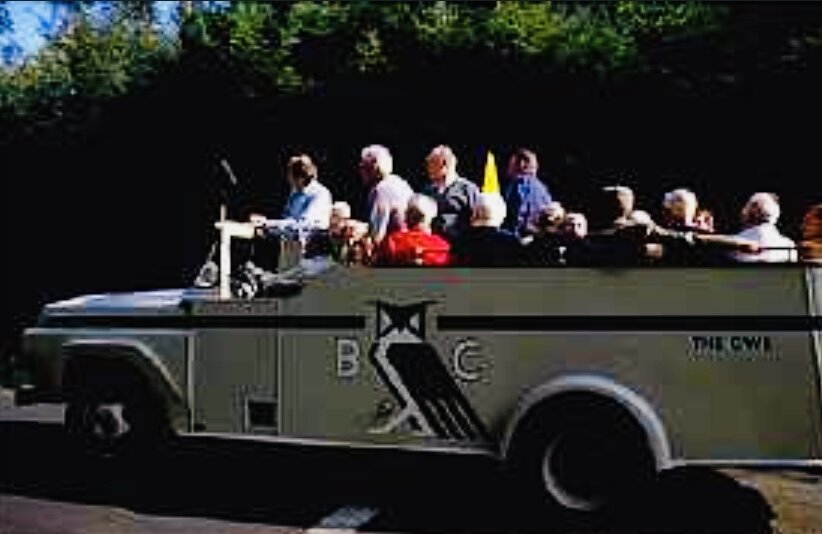Years of harassment for telling the truth has taught me a great deal about the type of people who would spend so much time and money doing that to me. If they had respected my rights and my freedom, I’d be as in the dark about their modus operandi as I used to be. To say what they do would make me sound absurd and ridiculous so instead I show it.
[Christopher Hitchens refused to remain silent.]
That is what really pulses through this book. The victims. So many who have not lived to see Kissinger and others like him put on trial. So many who are represented in the sweet tirade against a war criminal who walks in freedom but who is always, thanks to books like these, looking over his shoulder. Wondering if the Hitch will get him. Because a year after this book was published, the heroic Kissinger was sojourning at (where else?) the Ritz Hotel in Paris when he was summoned to appear before French judge Roger Le Loire, who wanted to question the "elder statesman" about his involvement in Operation Condor (and whether he knew anything about five French nationals who had been “disappeared" during the Pinochet dictatorship).
Rather than take the occasion to clear his name, Kissinger fled that very night. And he has never been able to sleep abroad with any semblance of serenity ever since: more indictments followed, from Spain, from Argentina and Uruguay, and even a civil suit in Washington, DC.
The link is here.
Oh yes, maybe the Hitch will indeed get him.
True, Christopher did not believe in ghosts or spirits or the afterlife. But indulge me, comrade. Accept that while books like these are alive, and while your innumerable allies continue the quest for justice, well, perhaps you can smile at the thought that we will refuse to let you become one more desaparecido.
ARIEL DORFMAN February 2012
…
The following is by Christopher Hitchens:
When this little book first appeared, in what may now seem the prehistoric spring of 2001, it attracted a certain amount of derision in some quarters, and on two grounds. A number of reviewers flatly declined to believe that the evidence presented against Henry Kissinger could be true. Others, willing to credit at least the veracity of the official documents, nonetheless scoffed at the mere idea of bringing such a mighty figure within the orbit of the law.
It says nothing for the author, but a great deal about the subject, to be able to report that the lapse of just one year has brought important and incriminating new disclosures and seen significant new developments. To begin with the disclosures, then, one might instance fresh and conclusive evidence under four of the headings originally discussed here: Indochina, Latin America, East Timor and Washington, DC. And, to follow on with the legal developments, one can now cite important proceedings brought against Kissinger in four democratic countries, including his own.
Credit: Kerry Richardson
I hope I will not seem to boast if I say that most of these disclosures and initiatives were foreshadowed in the first version of this book. At any rate, they now appear below and any reader may judge by comparison with the unaltered original text.
Indochina
Further material has come to light about both the origins and the conclusion of this terrible episode in American and Asian history. The publication of Larry Berman's No Peace, No Honor: Nixon, Kissinger and Betrayal in Vietnam in early 2001 provided further evidence of the secret and illegal diplomacy conducted by Nixon and his associates in the fall of 1968, and discussed on here here as well as in my appendix on here.
Reagan and Nixon at Bohemian Grove.
Indeed, it can now be safely said that the record of this disgusting scandal has become, so to speak, a part of the official and recognized record, rather as President Johnson's original provocation in the Gulf of Tonkin is now generally called by its right name. (In his edition of President Johnson's private papers and conversations in the fall of 2001, Professor Michael Beschloss produced first hand and direct proof that Johnson himself knew at the time that he was lying to the Congress and the world about the episode.)
As for the expiring moments of that hideous war, the month of May 2001 saw the publication of an extraordinary book, The Last Battle: The Mayaguez Incident and the End of the Vietnam War. Written by Ralph Wetterhahn, a Vietnam veteran who had decided to stay with the subject, the book establishes beyond doubt by the use of contemporary documents and later interviews that:
a) The crew of the Mayaguez were never held on Koh Tang island, the island that was invaded by the United States Marine Corps .
b) The Cambodians had announced that they intended to return the vessel, and had indeed done so even as the bombardment of Cambodian territory was continuing. During that time, the crew was being held on quite another island, named Rong Sam Lem. The statements of Ford and Kissinger, claiming credit for the eventual release and attributing it to the intervention on the wrong island, were knowingly false.









